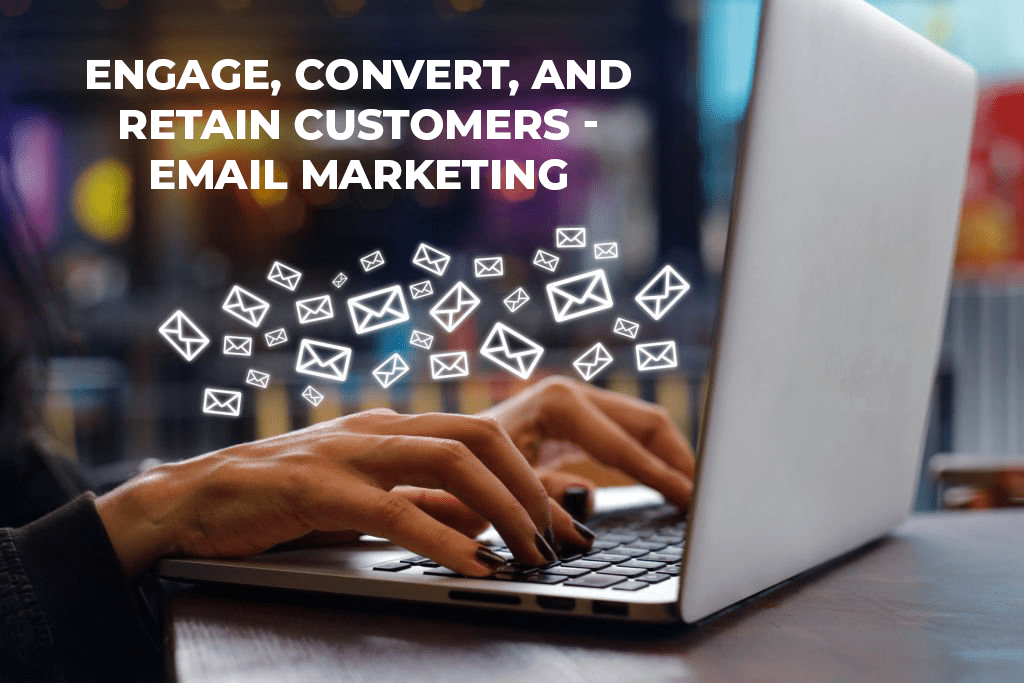In the ever-evolving landscape of digital marketing, some strategies stand the test of time, and email marketing is one of them. Despite the rise of social media and other communication channels, email remains a powerful tool for engaging with your audience, converting leads, and retaining loyal customers. In this blog post, we'll explore email marketing best practices that can help you achieve success in your campaigns.
Eternal HighTech
The Value of Email Marketing
Email marketing offers several advantages that make it a crucial component of any digital marketing strategy:
Direct Communication: Email allows you to communicate directly with your audience, delivering messages right to their inboxes.
Targeted Messaging: With advanced segmentation and personalization, you can send highly targeted messages based on user behavior and preferences.
Cost-Effective: Compared to many other marketing channels, email marketing is cost-effective and provides a high return on investment (ROI).
Automation: You can automate email campaigns, saving time and ensuring timely communication with your audience.
Now, let's dive into some email marketing best practices to help you make the most of this valuable channel.
1. Build a Quality Email List
The foundation of successful email marketing is a quality email list. Avoid purchasing email lists and focus on building your own. Collect email addresses through opt-in forms on your website, social media, and other touchpoints. Ensure that subscribers have willingly consented to receive emails from you.
2. Segment Your Audience
Not all subscribers are the same. Segment your email list based on factors such as demographics, purchase history, and engagement level. This allows you to send targeted, relevant content that resonates with different groups.
3. Personalize Your Emails
Personalization goes beyond addressing subscribers by their first names. Use subscriber data to tailor email content and recommendations. Personalized emails have higher open and click-through rates.
4. Craft Engaging Subject Lines
Your subject line is the first thing recipients see, so make it compelling. Use clear, concise language and create a sense of urgency or curiosity to encourage opens.
5. Provide Valuable Content
Deliver content that offers value to your subscribers. Whether it's informative blog posts, exclusive discounts, or helpful tips, ensure that your emails provide something beneficial.
6. Optimize for Mobile
Many users check their emails on mobile devices. Ensure that your emails are mobile-responsive and look good on various screen sizes.
7. A/B Test Your Emails
Experiment with different elements of your emails, such as subject lines, visuals, and CTAs, through A/B testing. Use the insights gained to refine your email strategy.
8. Use Clear Calls to Action (CTAs)
Every email should have a clear and compelling call to action. Whether it's "Shop Now," "Learn More," or "Subscribe Today," make sure the CTA stands out.
9. Monitor and Analyze
Track key metrics such as open rates, click-through rates, conversion rates, and unsubscribe rates. Analyze the data to understand what's working and what needs improvement.
10. Maintain List Hygiene
Regularly clean your email list by removing inactive or bounced email addresses. This ensures that you're sending emails to an engaged and responsive audience.
11. Automate Email Campaigns
Use email marketing automation to send targeted messages based on user behavior, such as welcome emails, abandoned cart reminders, and post-purchase follow-ups.
12. Respect Subscribers' Preferences
Provide an easy way for subscribers to manage their preferences or unsubscribe if they wish. Respecting their choices builds trust and goodwill.
Conclusion
Email marketing remains a powerful tool for engaging, converting, and retaining customers. By following these best practices and continuously refining your email marketing strategy based on data and feedback, you can leverage the full potential of email marketing to nurture relationships with your audience, drive sales, and achieve your business goals. Remember that successful email marketing is about delivering value and building lasting connections with your subscribers.


